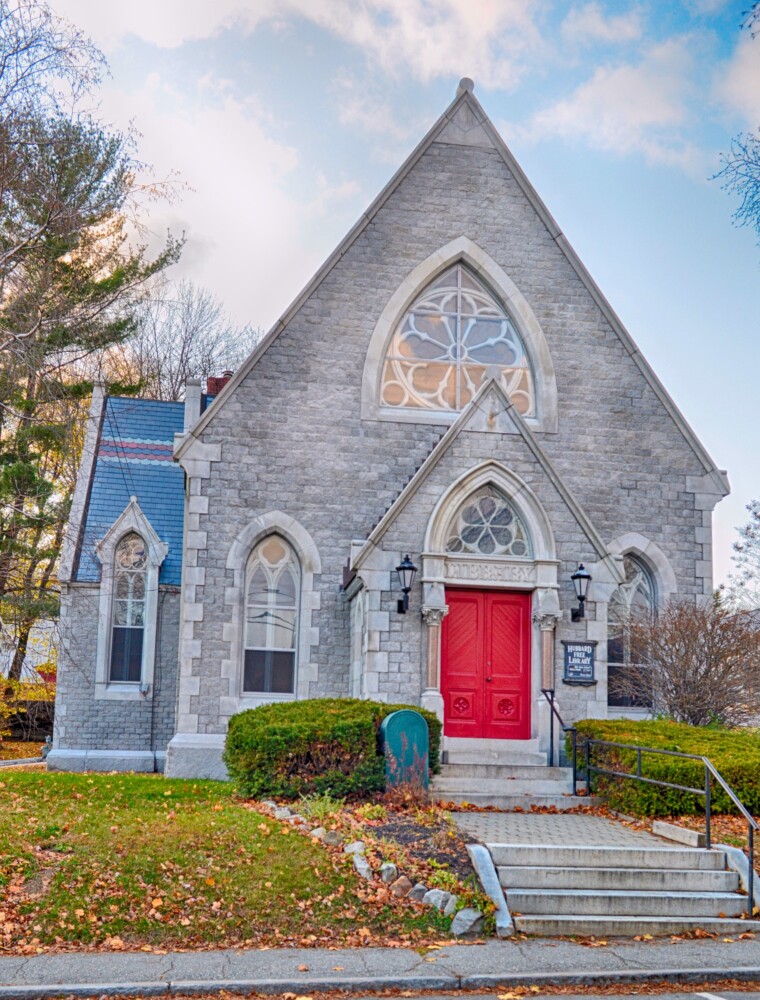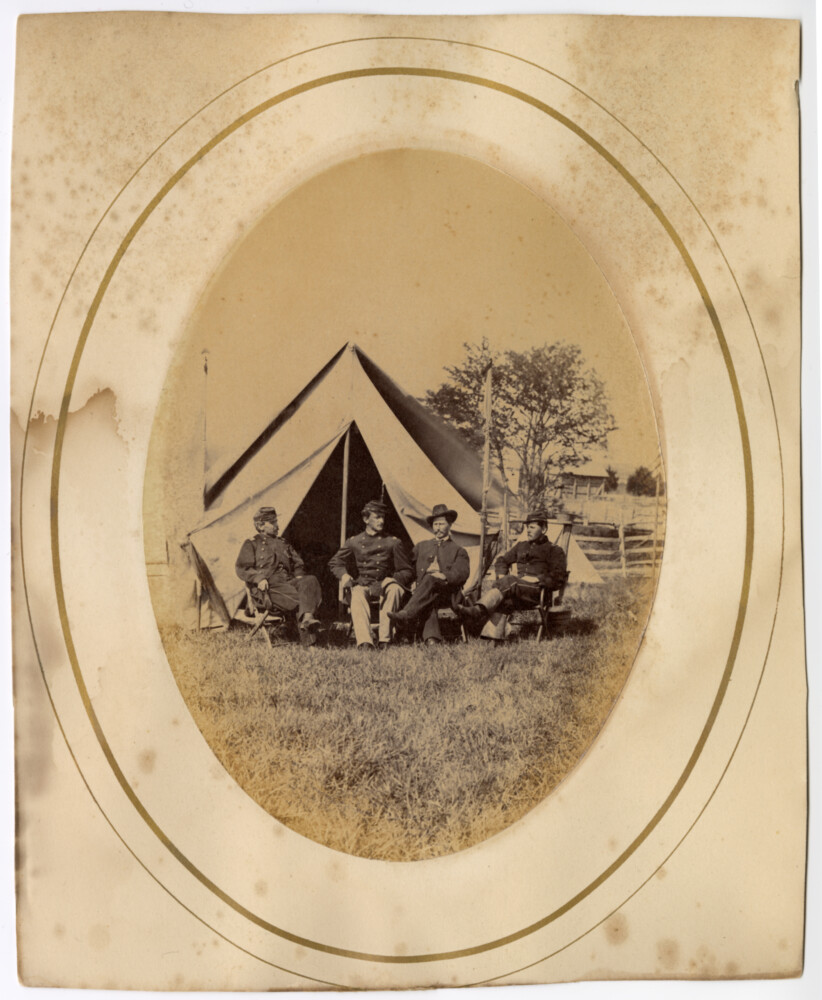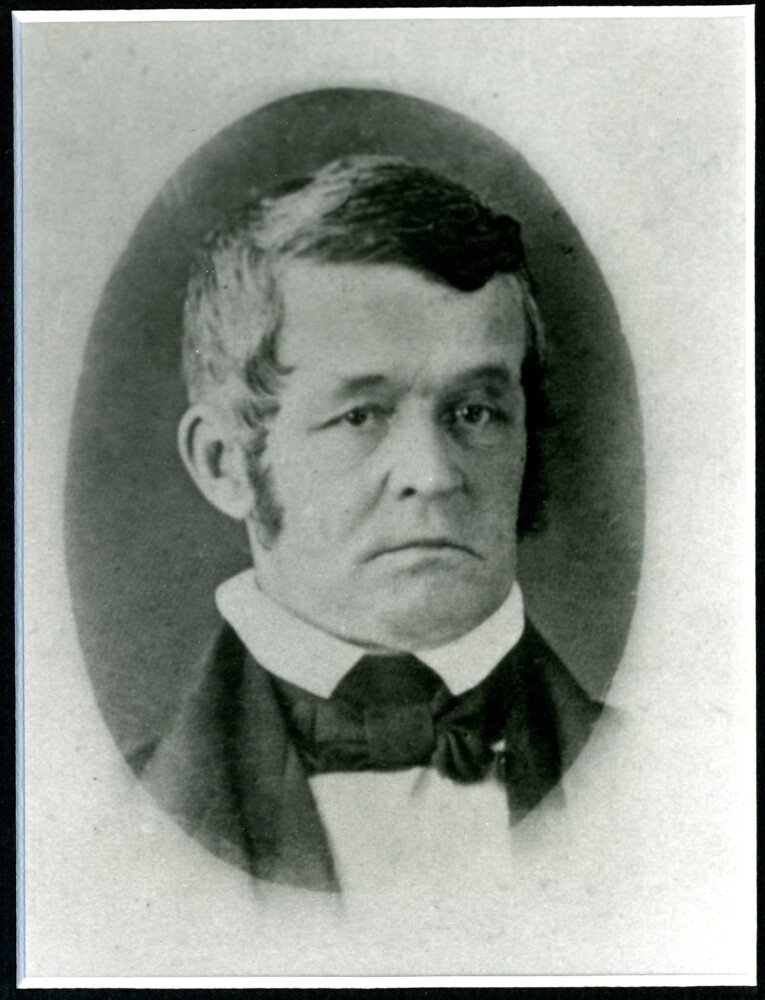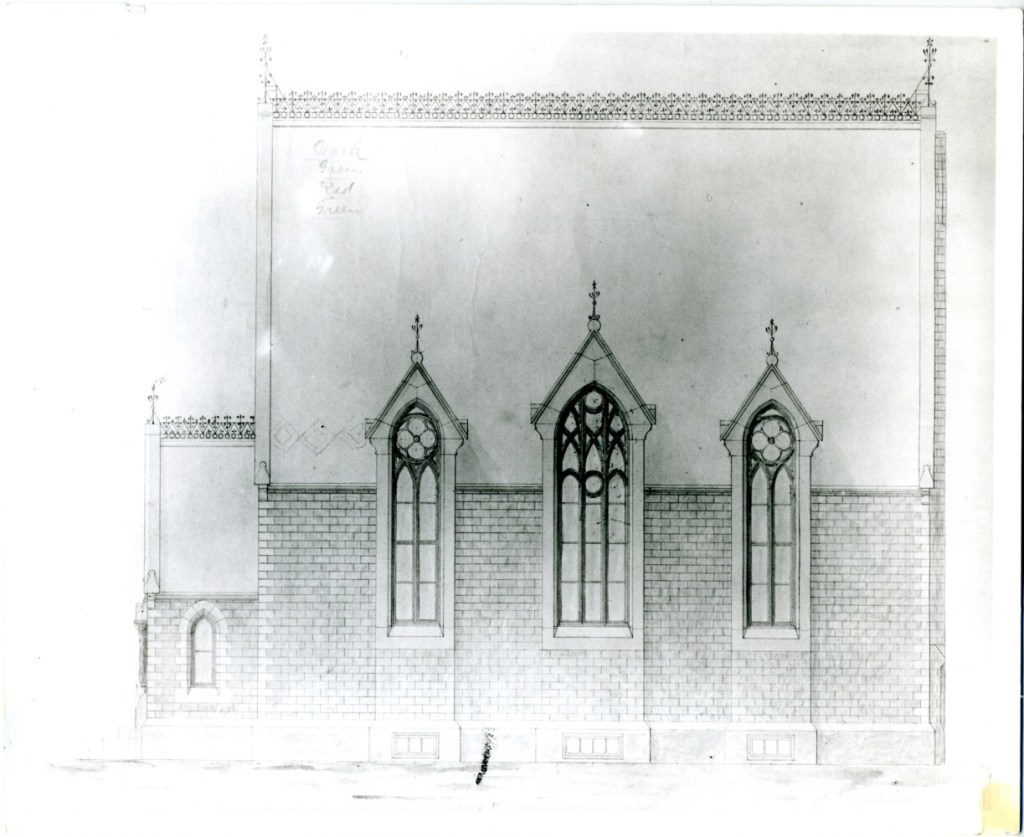HALLOWELL — A look back at its namesake family’s role will kick off Hubbard Free Library’s annual fundraising campaign Friday.
Maine State Historian Earle Shettleworth will lead a 6 p.m. talk about how the library came to be named after the Hubbards, a prominent Hallowell family during the 1800s. Shettleworth, a member of the library’s Board of Trustees, said the talk will be more comprehensive than any other effort to explain the Hubbard family’s role in supporting the library.

A daguerreotype of Governor John Hubbard by Mathew Brady, circa 1850. Image provided by Bob McIntire, courtesy of Bowdoin College Museum of Art
He said the Hubbard family’s ties to Hallowell began with John Hubbard, who was born in Readfield in 1794, but practiced medicine in Hallowell for a number of years.
“He was the primary doctor, not only in Hallowell, but in the Kennebec Valley,” Shettleworth said. “Because of his excellent training (and) … his knowledge and experience, he was looked to (for help) by other physicians in Kennebec County.”
After serving in the state Senate, Hubbard became governor in 1849. Shettleworth said that Hubbard was a “progressive” governor, leading a number of reforms at the state level, including supporting higher education for women and the development of Aroostook County.
“I’ve always considered him to be one of the most successful governors,” Shettleworth said. “He was very broad-minded about politics and very bi-partisan.”
Hubbard returned to Hallowell and again practiced as a doctor until his death in 1869. One of John Hubbard’s four children, Thomas Hubbard, captain in the Union Army in the Civil War, became a lawyer after the war. He was very wealthy, which led to a number of considerable donations of money that improved Bowdoin College, his alma mater.
“By the late 1880s, he’s become highly recognized as a corporate lawyer and highly successful financially,” Shettleworth said. “Ultimately, when he dies in 1915, he leaves an estate of over $4 million.”
In 2019, that amount would be equal to more than $100 million.
During this period, Shettleworth said, Hallowell newspaper writer and judge H.K. Baker founded the Hallowell Social Library, a private, membership-based library. Shettleworth said social libraries preceded free libraries.
“The concern is always, with these social libraries, … that they exclude members of the population (with less disposable income),” he said. “Baker’s dream is always to turn the social library into a free library, which is a big movement after the Civil War.”

Initial designs of the Hubbard Free Library in Hallowell by architect Alexander C. Currier. Image courtesy of Hubbard Free Library
In 1883, Baker penned a letter to Thomas Hubbard asking him for $20,000 — $10,000 for a new addition to the library and $10,000 to go toward an endowment to allow the library to be free. Shettleworth said Thomas Hubbard replied immediately and agreed, on the condition that the library be named after his family.
The first section of the Hubbard Free Library was built by the Hallowell Social Library trustees between 1878 and 1880, Shettleworth said. The library, designed by architect Alexander Currier, is the oldest library building in Maine still serving its original purpose.
“It shows you how progressive Hallowell was and how aware it was of publishing, reading and education,” Shettleworth said.
Over the next 20 years, two more sections were added to the library, including one funded by Eliza Clark Lowell, a descendant of the first settler in Hallowell, Deacon Pease Clark.
Ken Young, president of the library’s Board of Trustees, said Friday’s event will kick off the annual fundraising campaign, which has a goal of $45,000 for Hubbard’s annual fund. He said trustees have raised 45% of the goal already.
The library — a nonprofit that is supported by the city, but not formally affiliated with it — has been strapped for cash lately and asking for increased municipal funding. This fiscal year, despite calls to close an anticipated deficit with $60,000 in municipal funds, the council moved along a budget with unchanged $42,000 for the library from last fiscal year.
Last year, the city allocated $15,000 in TIF funds, on top of its usual $27,000 contribution, for strategic planning to determine the best way forward for the library. Young said in June that the effort revealed Hallowell residents wanted more from the library and a strategic plan will be completed in December for council review.
Young said initial donations have been strong this year, which he credited to the hard work of library staff and perhaps added publicity of the library’s struggles to gather funding. This year, the library closed on Fridays to mitigate a projected $15,000 shortfall. Young said a strong annual fund could help the library open back up on Fridays and even Mondays, which he said were cut from the schedule back in 2017.
Send questions/comments to the editors.







Success. Please wait for the page to reload. If the page does not reload within 5 seconds, please refresh the page.
Enter your email and password to access comments.
Hi, to comment on stories you must . This profile is in addition to your subscription and website login.
Already have a commenting profile? .
Invalid username/password.
Please check your email to confirm and complete your registration.
Only subscribers are eligible to post comments. Please subscribe or login first for digital access. Here’s why.
Use the form below to reset your password. When you've submitted your account email, we will send an email with a reset code.